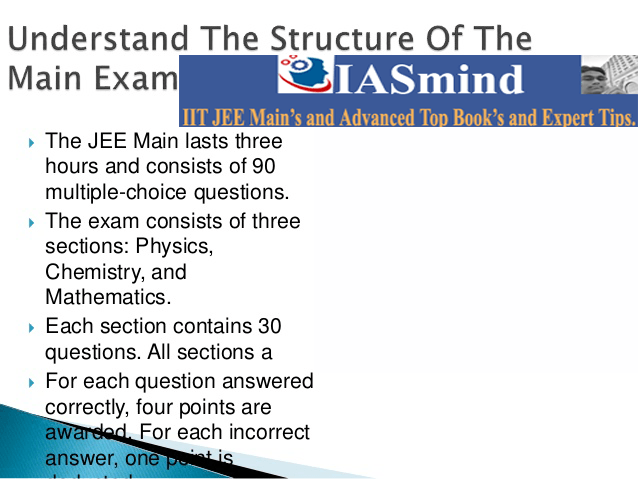JEE-Top Book’s for “Physics”
- Concepts of Physica Vol I and II: H.C Verma
- Fundamentals of Physics (Halliday, Resnick & Walker)
- Concept of Physics Volume 1 & Volume 2 (H C Verma)
- Dynamics of a Particle & of Rigid Bodies (S.L. Loney)
- Problems in physics (A. A Pinsky)
- Problemsin General Physics by E. Irodov
This is generally of a level above the general questions asked currently in IIT-JEE and may be considered optional. The books mentioned above can be used for all topics. Concepts can be difficult to learn in physics. I would recommend Fundamentals of Physicsby Resnick and Halliday or University Physics by Sears and Zemansky. For problems, I would recommend Problems in General Physics by I.E Irodov. If you can’t solve Irodov initially, start with an easier book or previous years’ JEE problems.
JEE-Top Book’s for “Physical Chemistry”
- Physical Chemistry (O.P. Tandon)
- Physical Chemistry (P.Bahadur)- For theory only
- University Chemistry (Bruce H. Mahan)
- IITJEE Chemistry (O.P Agarwal)
- NCERT Chemistry XI, XII
JEE-Top Book’s for “Organic Chemistry”
- Organic Chemistry (O.P. Tandon)
- Organic Chemistry (Arihant Prakashan)
- Organic Chemistry (Bahal & Bahal)
- Organic Chemistry (J.D March)
- Concept of Organic Chemistry (M. S. Chauhan)
JEE-Top Book’s for “Inorganic Chemistry”
- Inorganic Chemistry (Arihant Prakashan)
- Concise Inorganic Chemistry (J.D.Lee)
- Inorganic Chemistry (O.P. Tandon)
- Inorganic Chemistry (J.D. Lee)
- NCERT Chemistry XI, XII
JEE-Top Book’s for “Mathematics”
I can not stress this enough – studying theory in maths is as important as in physics and chemistry. Maths is not only about solving some equations or some problems but also about understanding how theorems were arrived at and the intuition behind several conventions and ideas. So it is very important that you study the theory given in NCERTs and other books that precedes the examples and questions. This would give you a better understanding of the concepts and certainly help you in JEE.
- Maths XI & XII (R.D. Sharma)
- Higher Algebra (Hall and Knight)
- Co-ordinate Geometry (S. L. Loney)
- Problems in Calculus of One Variable (I.A. Maron)
- Calculus and Analytic Geometry by Thomas and Finney for Calculus.
- A textbook of Matricesby Shanti Narayan
- [practice] Course in Mathematics for IIT-JEE by Tata McGraw Hill publications.
- [practice] Problems Plus in IIT Mathematics by A Das Gupta
- [practice]Trignometry by S L Loney
- Trigonometry (S. L. Loney)
For All Subjects
Use NCERT only as a guideline for the syllabus. These degenerate books have no concepts at all and are used as holy edicts by the CBSE and now JEE. Solve previous JEE papers for all subjects. For Physics and Chemistry, also solve the first round Olympiad papers (NSEP and NSEC). Do not use any preparation material from coaching institutes. They have no concepts and they problems are often flawed.
General Advice:
- Study NCERT books thoroughly The first thing that you should do for any topic in any subject is go through the NCERT chapter. This is exclusive of my disclaimer above and I would strongly recommend that you do the NCERTs irrespective what your teachers say. NCERT textbooks are written by a team of author’s who are all experts in their area. For example, one of the author’s in the Physics textbook is Prof. Ajoy Ghatak who is an expert in the field of optics and I would assume that the chapter(s) on optics are primarily written by him. Also, NCERTs contain some of the most basic material explained very well. It is essential that you master all the basics before moving on to more “advanced” ideas. So, the first thing to do is read the NCERT chapters thoroughly and this includes any side notes or extra information that may or may not be part of the CBSE boards syllabus. Once you have completed the exercises for the relevant topic, you are ready to move to the next step.
- Read an advanced book Once you have finished the relevant sections from the NCERT textbook, you can move on to a more “advanced book”. This book would differ with subjects and may differ on different topics within the subject. A list of these “advanced books” is contained below in this answer. In all cases, the idea is to understand the theory behind some of the more advanced topics that may not be covered in the NCERT textbooks. As in the case of the NCERT textbooks, you should begin with understanding the theoretical parts and then do the exercises given in the book. In my opinion, at this point you should have a sufficient level of understanding to help you do well in the IIT-JEE. Note: A lot of these books may contain sections that are beyond the IIT-JEE syllabus and for students focused on the JEE alone, you may omit these extraneous sections after consulting the JEE syllabus.
- Practice Once you have done both the relevant topic from both the NCERT and the advanced textbook, if you have time at your hand, you can move ahead and practice some the topics from books which focus primarily on questions. A list of practice material can be found below. This would help you strengthen your understanding of topic and also give you some experience with application of the concepts which you have learnt. If you are not able to solve some question, you may re-read the relevant section from the NCERT or the “advanced” book.
